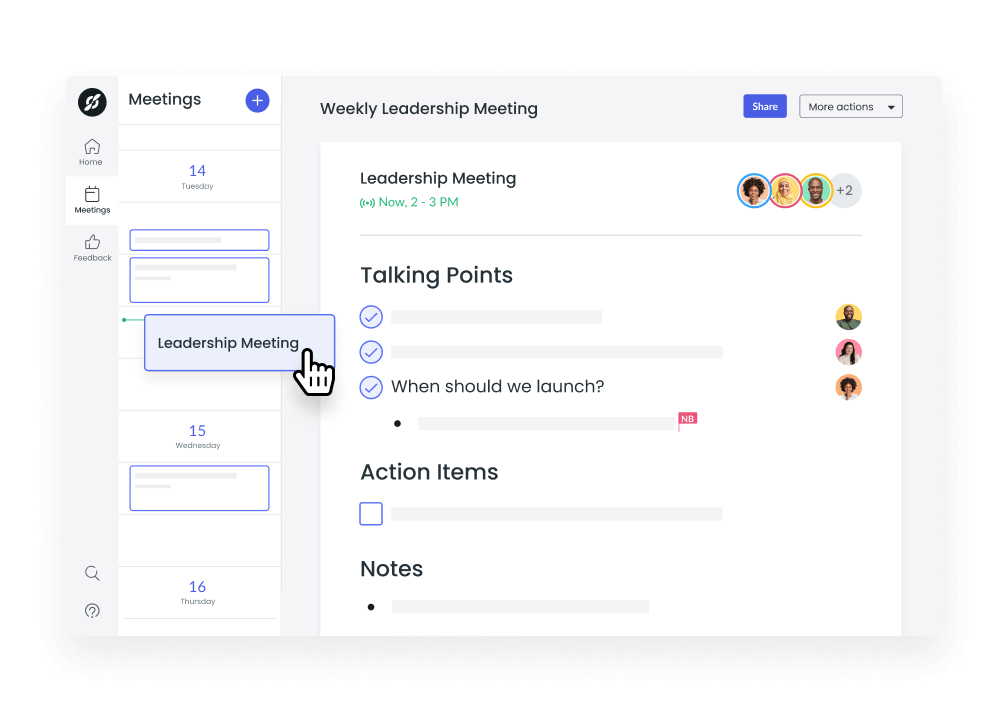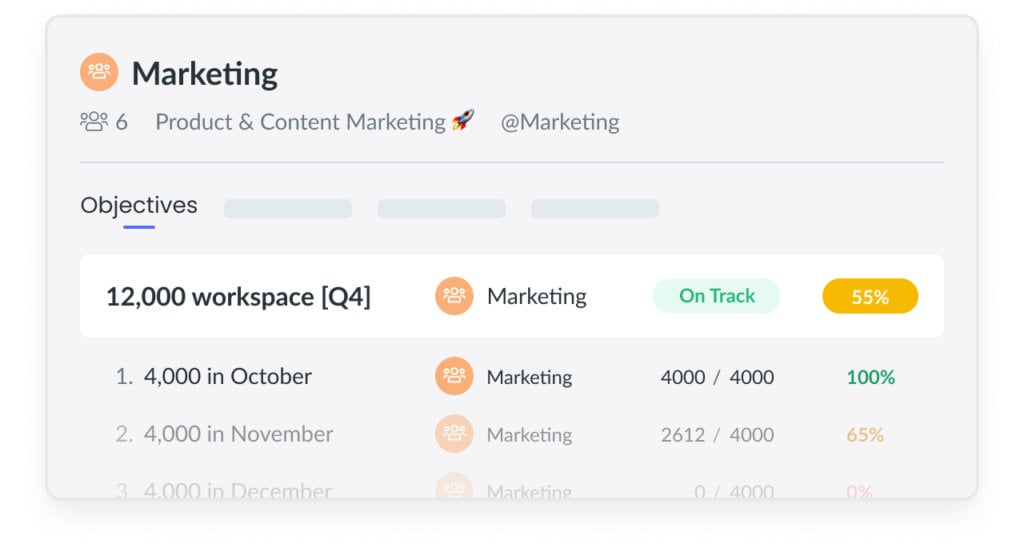10 Ways to Effectively Deal with a Difficult Coworker
Dealing with a negative Nancy or a criticizer Chris at work? Learn how you can work with difficult personalities and still achieve success!
You hop onto your Monday morning team meeting on Zoom and ask everyone about their weekend. Your colleague James immediately begins complaining about the weather and how it’s affecting his mood. Your supervisor, Linda, decides it’s time to tell a long-winded story about something completely irrelevant that throws the meeting off course. Lastly, your intern Michelle begins expressing her frustration about a client proposal that didn’t work out. What a way to start the week.
You love your company and find your role fulfilling, but to be honest… your colleagues are starting to get to you. We all have those days when we feel down, but it can begin to affect our well-being and work-life when we’re surrounded by regular negativity and distractions.
Dealing with difficult coworkers is just that: difficult. Let’s take a look at the different types of challenging personalities you may encounter in the workplace and how to work with them while prioritizing your success.
Types of difficult colleagues
- Bullies: Bullying doesn’t stop on the elementary school playground. At work, bullying can look like spreading rumours, excluding someone socially, intimidating a teammate, or making someone feel psychologically unsafe. Bullying can be a serious issue that deeply affects an employee’s emotional, mental, and physical well-being.
- Negative colleagues: Have you ever brought an exciting and realistic idea to the table, only to have your coworker shoot it down? If so, you may have a teammate with a negative mindset. These individuals have the opposite of a growth mindset—they have trouble seeing the good and spend too much time complaining about challenges instead of working to find solutions.
- Energy drainers: Energy drainers come in many forms. Some love to chat about non-work-related topics a bit too much, while others think it’s appropriate to pile unnecessary work onto your plate at inconvenient times. While your own social battery depletes throughout the day, the energy drainer is always wanting to talk, vent, and waste your time.
- Criticizers: Criticizers will take every opportunity to find fault with another’s work. Instead of addressing issues and giving meaningful feedback, criticizers want to tear others down for the sake of doing so. These individuals often have a hard time receiving criticism themselves, despite their tendency to give it frequently.
- Slackers: We’ve all had a colleague who makes promises that we know won’t be kept. Slackers avoid effort, have difficulty meeting deadlines, and do most of their work at the last minute.
- Gossipers: Workplace gossipers focus their attention on personal, private, and sensitive information that doesn’t pertain to their role during their working hours. These individuals do so because they fear the unknown, crave intimacy or a sense of connection, want to belong, and want to complain about others whom they deem “unworthy.”

Make great meetings a part of your organization’s culture
Enable managers and leaders to proactively support teams with Fellow’s uniform meeting templates, collaborative one-on-one meetings, and feedback tools.

How to deal with difficult people at work
- Lead by example
- Understand the situation
- Focus on solutions
- Set goals
- Raise the issue
- Find common ground
- Limit contact with the person
- Be professional
- Build alliances
- Have difficult conversations
1Lead by example
The first intervention you can make when dealing with a difficult coworker is leading by example. If you see other colleagues bullying a peer, address it at the moment and raise the issue to senior leadership. If you know others love to gossip in the break room during your lunch hour, don’t participate and actively try to change the subject. When your peers realize that their behaviors make you upset or uncomfortable, they’ll be less likely to act that way around you.
2Understand the situation
There’s often more than meets the eye. If you notice a peer who’s usually cheery and motivated has been acting negative lately, they may be going through a difficult time. While you shouldn’t try to counsel someone without their permission or the proper qualifications, you can ask the person in private if they’re alright or require any support. If you do have this type of difficult conversation, ensure you don’t bear the burden of the situation. Be prepared with resources to which you can refer the person and lend a listening ear if you have the capacity.
3Focus on solutions
Solution-oriented workers don’t spin their wheels stressing about past issues or what’s going wrong. Instead, they focus on a plan that will get them one step closer to achieving their goals. The next time you have to work with someone who’s focused on the negative, embrace collaboration. You can even seek out experts who will help you and the other person think in new ways. If your teammate is hindering your ability to make progress on the task, encourage them to focus their energy on coming up with a solution instead of complaining.
4Set goals
If you’re tasked to work on a project with a colleague with whom you don’t get along, set a goal for each task at the beginning. For example, if you’re both working on the business development team at a startup, your Q1 goals may be to finalize a business plan, work with marketing on your first ads campaign, and secure your first 25 customers. If you aren’t able to agree with a colleague about other things, at least you’ll be able to bond over the small wins you achieve together! Sometimes, keeping your eyes on the prize will distract you from personality clashes.
With Fellow’s Objectives tool, you can stay on top of your team’s goals by clearly recording, defining, and tracking the progress of your OKRs. Plus, you can quickly review those objectives during your team meetings!

5Raise the issue
There are personality differences, and then there is unacceptable behavior. When behaviors are problematic they hinder team progress. If the scope of the issue extends beyond occasional negativity, you should inform your manager. Schedule a one-on-one meeting with your supervisor and use the time to politely discuss the matter. You can use Fellow to have a great one-on-one meeting that empowers you to keep track of this interaction alongside other important feedback.
6Find common ground
You’ll come across people in your life and career with whom you simply won’t agree on anything. Don’t stress too much about it. If you’re finding it hard to make decisions with a colleague because of conflicting personalities, prioritize the success of the project above all else. The next time you’re in a meeting or having a conversation with said individual, try to agree on the big picture, and work backward from there. If you can’t agree on the big picture, have a manager or unbiased colleague help you determine what milestones you should be working towards!
7Limit contact with the person
If a coworker is causing you serious frustration or distress, try limiting contact with the person. If you work too closely with them and can’t disengage, raise the matter with your supervisor and ask them to help you develop some next steps. You should never feel trapped in an environment that hinders your productivity, effectiveness, or ability to maintain your inner peace.
8Be professional
You can go home and say whatever you’d like to your family and friends, but you should do your very best to keep things professional at work. If a colleague says something rude, never reply with an insult, pettiness, or a sarcastic reply. Remind yourself that you’re not at work to be friends with everyone. Keep your eyes on your professional objectives and don’t say anything you’ll later regret.
9Build alliances
You’ll be surprised how much motivation and positive energy can come from alliances with other growth-oriented colleagues. Concentrate your energy on building relationships with others in the company who prioritize healthy communication, respectfulness, teamwork, and active listening. When you’re with these coworkers, try your best to avoid office gossip. While it is important to vent sometimes, complaining often will negatively impact your mood.
10Have difficult conversations
Have a conversation with the difficult individual if you must. For example, if your colleague Beth has been slacking and letting you down lately, you can say something like, “I’ve noticed that you haven’t completed some of the tasks you were assigned for the project. In the future, can you please let me know if you require a deadline extension so that the team can move forward with the remaining pieces? Clear communication is key!” If you’re dealing with a criticizer, you can kindly let them know that you would rather receive feedback more respectfully. Please note that you should always escalate the issue with your manager if a person makes you feel unsafe or like you’re unable to do your job.
Parting advice
Office politics are tough. The next time Joe from IT or Mary from sales makes you feel inferior, refer back to our tips. You won’t be everyone’s best friend—or you may not even have a good relationship with each member of your team—but with some patience, preparation, and effective communication, you’ll be ready to approach all interactions with ease.










